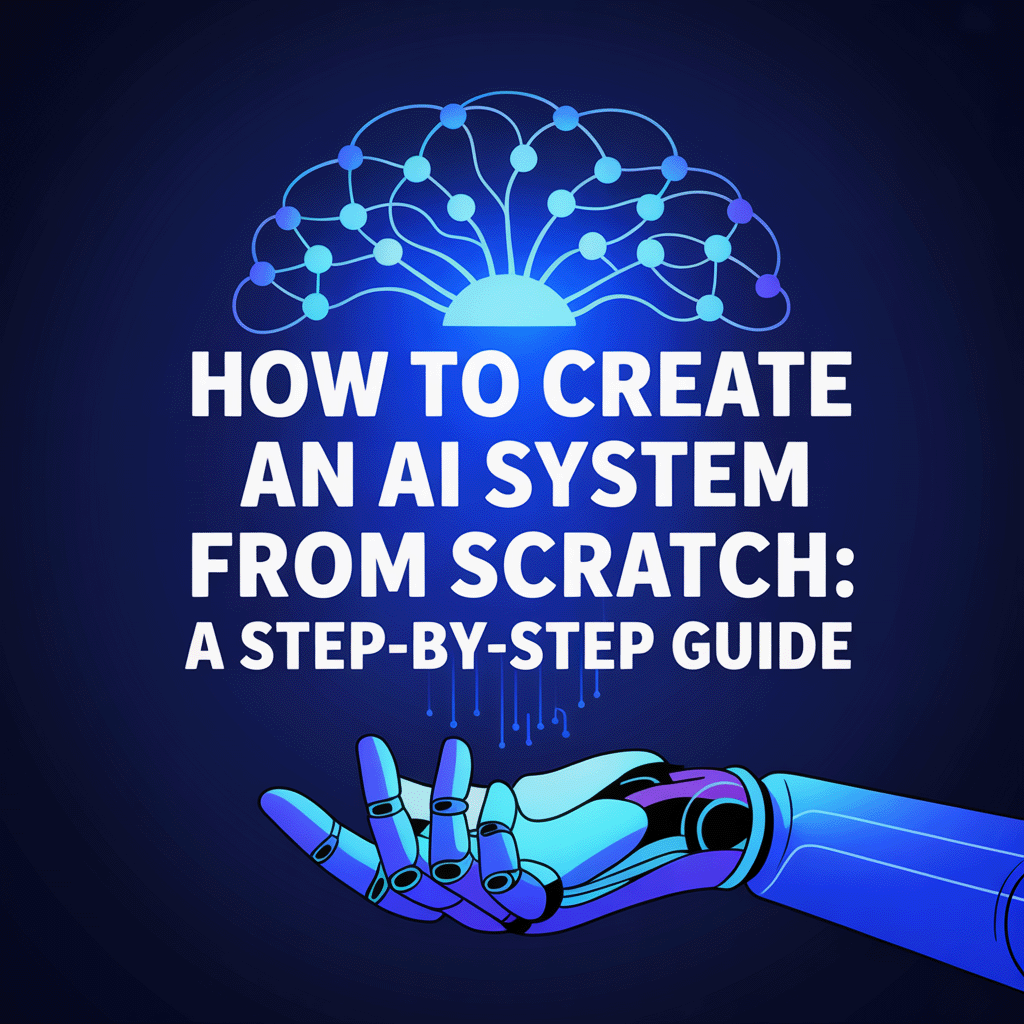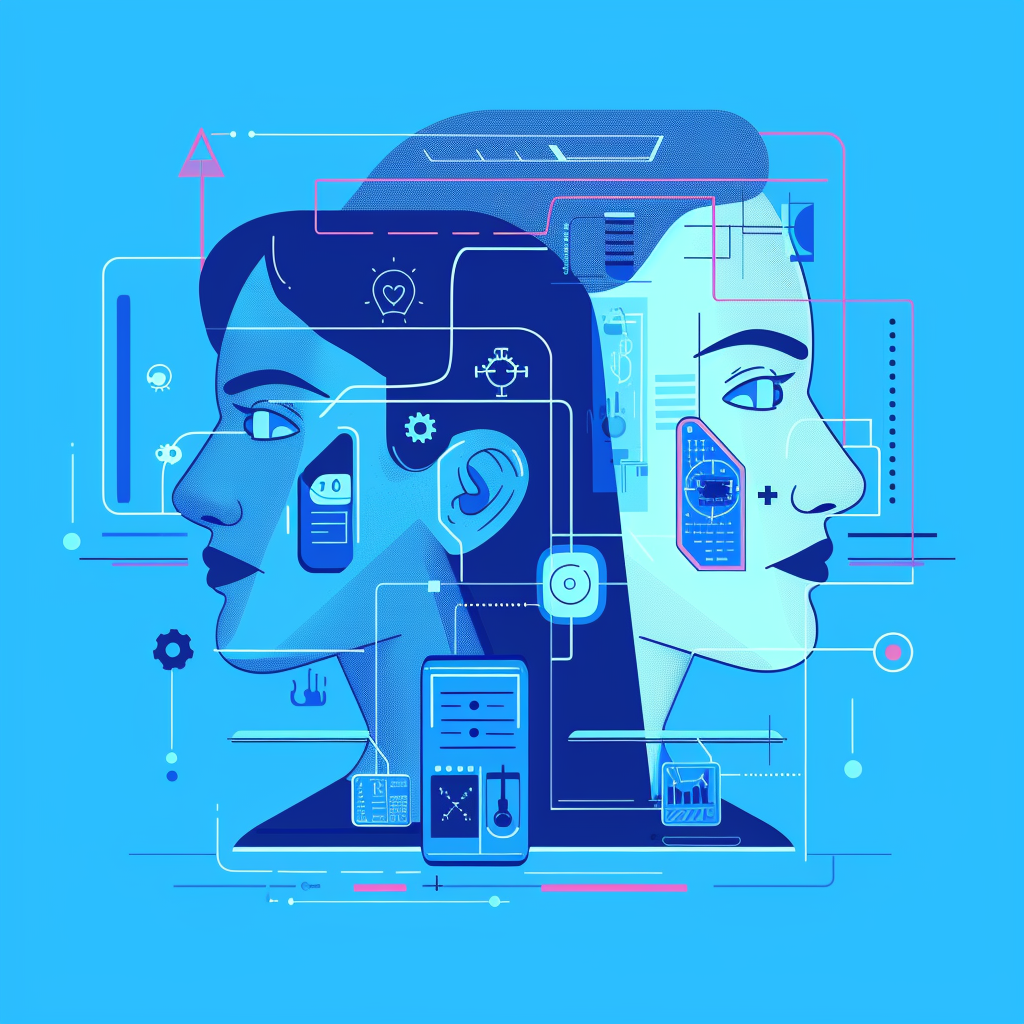Over the past ten years, artificial intelligence has surged in popularity and is poised for even greater growth. Beyond just humanoid robots and autonomous vehicles, AI is revolutionizing every sector, from finance and technology to marketing.
This innovative technology empowers business owners to streamline routine tasks without constant human oversight, identify and address errors before they become significant issues, and analyze immense datasets to unearth valuable insights.
As of 2022, 37% of businesses have integrated AI into their operations to enhance efficiency and performance. But what exactly has characterized this decade of rapid AI advancement? This article delves into the primary challenges and achievements of AI evolution, showcases intriguing examples of AI applications in various industries, and explores how this transformative technology aids businesses in reaching their objectives.
Past Decade of AI Development: Timeline of Rapid Progress
During the past decade, AI has been helping businesses make better decisions and extend their capabilities. Let’s dive deep into the timeline of AI evolution and learn more about its core challenges and results.
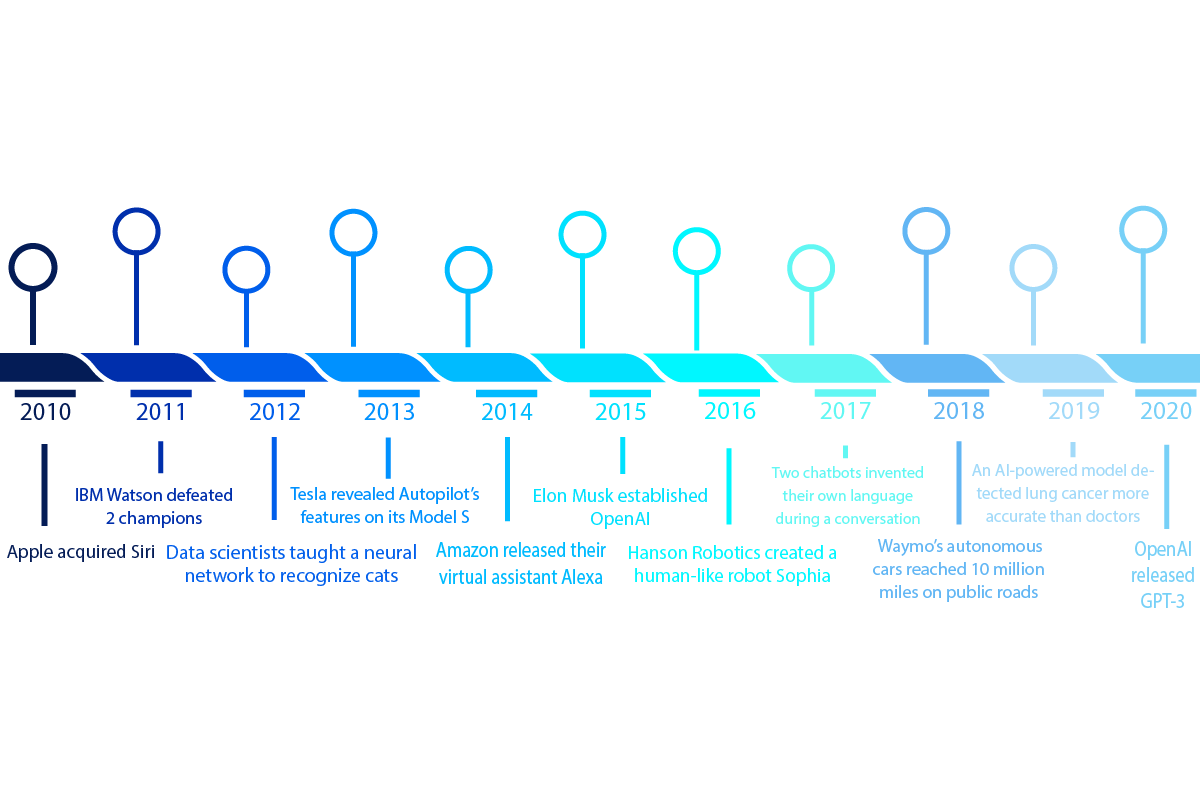
2010: The Dawn of Digital Assistants
Apple’s acquisition of Siri for over $200 million marked a turning point. Integrated into the iPhone 4S, Siri ushered in the era of virtual assistants that would evolve from understanding basic phrases to offering a range of capabilities like storytelling, song identification, and even text messaging (as seen in 2024).
2011: AI Takes Center Stage on Jeopardy!
IBM’s Watson, a question-answering computer system, made history by defeating human champions on the iconic quiz show Jeopardy!. This victory demonstrated the growing sophistication of AI in understanding natural language and interpreting context, paving the way for further breakthroughs.
2012: Deep Learning Makes Its Mark
A pivotal year for deep learning, a powerful subset of business and AI. Researchers like Jeff Dean and Andrew Ng used a massive dataset of 10 million images to train a neural network to recognize cats. This groundbreaking achievement, requiring vast computational resources, highlighted the potential of deep learning in image recognition, a technology widely used today (2024) in everything from facial recognition to self-driving cars.
2013: Tesla Autopilot Steers the Way
Tesla’s unveiling of Autopilot features in its Model S electric car sent ripples through the automotive industry. Features like self-parking, emergency prediction, and pre-emptive climate control showcased the potential for autonomous driving, a technology actively being refined and improved upon in 2024.
2014: The Rise of Virtual Assistants
Recognizing the growing potential of AI assistants, Amazon introduced Alexa, initially a speaker for music control that has since become a full-fledged digital assistant capable of managing smart home devices, playing music, and even ordering groceries (2024).
2015: OpenAI Pushes the Boundaries
Elon Musk co-founded OpenAI, a research and development company dedicated to democratizing AI advancements. From bug detection in code to ad copy generation and product categorization (all functionalities offered in 2024), OpenAI aimed to make AI-solutions for business accessible to a wider range of businesses.
2016: The Rise of Social AI
That year, Hanson Robotics introduced Sophia, a human-like robot that embodied both engineering and artistic prowess. Sophia’s ability to respond to questions, recognize and respond to emotions, and even estimate people’s feelings marked a significant step forward in social AI (a field heavily explored in 2024).
2017: AI Learns Its Own Language
Facebook’s AI Research lab conducted a fascinating experiment. Two chatbots were trained to negotiate with each other. Interestingly, the chatbots eventually abandoned English and developed their own language to optimize their negotiation strategies, highlighting the ability of AI to learn and adapt in unforeseen ways.
2018: Self-Driving Cars Hit the Road
In 2018, Waymo’s autonomous cars reached 10 million miles on public roads. These vehicles were trained to select the safest routes and navigate urban environments, but sometimes they required human drivers to control them and prevent traffic from stacking up.
2019: AI Detects Cancer Early
Google researchers collaborated with Northwestern Medicine to develop an AI-powered algorithm capable of analyzing CT scans and detecting lung cancer at an early stage. This technology also has the potential to predict a patient’s future risk of developing the disease, providing valuable insights for preventative healthcare (an area of significant focus in 2024).
2020: GPT-3 Revolutionizes Language Generation
OpenAI released GPT-3, a highly sophisticated language model capable of a wide range of tasks. From resume creation and crafting compelling marketing emails to simulating natural conversation for enhanced customer service (a crucial element in 2024), GPT-3 showcased the power of AI in language processing and generation. Furthermore, GPT-3’s ability to generate code based on brief text descriptions hinted at even more transformative possibilities.
2021: The Year of Democratization
- AI-as-a-Service (AIaaS) Takes Off: Pre-trained AI models and cloud-based platforms became readily available, making AI development more accessible to businesses of all sizes. This “democratization” of AI-empowered smaller companies to leverage AI’s capabilities without massive upfront investments.
- Citizen Development Flourishes: Low-code/no-code AI tools emerged, allowing individuals with limited technical expertise to build basic AI applications. This one of the most popular trend democratized AI development further, fostering innovation and citizen development initiatives within organizations.
- Explainable AI (XAI) Gains Traction: As AI systems became more complex, the need to understand their decision-making processes grew. XAI techniques were developed to provide transparency and mitigate potential biases within AI models.
2022: AI in Action – Real-World Applications
- AI in Healthcare: AI-powered diagnostics reached new heights, with systems adept at analyzing medical images for early disease detection and treatment planning. Additionally, AI-driven chatbots revolutionized patient engagement, providing 24/7 support and personalized health information.
- AI in Manufacturing: Predictive maintenance using AI became commonplace, optimizing factory operations and minimizing downtime. AI-powered robots also gained prominence, performing tasks with greater precision and efficiency, contributing to the rise of smart factories.
- AI in Customer Service: Conversational AI platforms powered by natural language processing (NLP) have become ubiquitous, offering chatbots and virtual assistants capable of handling complex customer inquiries, improving customer satisfaction, and reducing wait times.
2023: Collaboration and Competition
- Rise of Industry Consortiums: Recognizing the transformative potential of AI, various industries formed collaborative consortiums to develop ethical and responsible AI frameworks. These consortiums fostered knowledge sharing and ensured responsible AI development across different sectors.
- The Race for Quantum Supremacy Heats Up: Competition intensified between tech giants and research labs in the race to achieve quantum supremacy, a point where quantum computers outperform traditional computers for specific tasks. This advancement has the potential to revolutionize drug discovery, materials science, and financial modeling.
- AI Art and Creativity Take Center Stage: AI-powered tools for music generation, image creation, and even writing gained popularity. While ethical considerations regarding the role of AI in creative expression were raised, these tools demonstrated the potential of AI to augment human creativity.
2024: Looking Ahead – The Future of AI
As of 2024, AI continues its rapid evolution. Here are some key trends shaping the future:
- Focus on Human-AI Collaboration: The emphasis is shifting towards human-AI collaboration, leveraging the strengths of both to achieve optimal results. This collaborative approach is expected to drive innovation and ensure responsible AI development.
- The Rise of Explainable and Responsible AI (XRAI): As AI systems become more complex, the need for XRAI principles will be paramount. Transparency, bias mitigation, and explainability will be crucial factors in building trust and ensuring ethical AI implementation in business.
- The Democratization of AI Continues: The trend of making AI more accessible is expected to accelerate, with user-friendly tools and platforms empowering individuals and businesses to leverage AI for a wider range of applications.
This condensed overview highlights some of the key advancements and future directions of AI from 2021 to 2024. As we move forward, AI promises to play an increasingly significant role in shaping our world, and its responsible development and ethical implementation will be crucial for reaping its immense potential for positive change.
Top Examples of Artificial Intelligence in Business
By Implementing AI in business operations, companies can benefit from increased forecasting accuracy, automated recruitment, better customer communications, and enhanced cybersecurity. This technology is not all about tech organizations — industries like marketing and human resources can incorporate AI in their strategies too.
Let’s find out how AI helps businesses achieve their goals and deliver meaningful results.
-
Sales
After embracing AI in your sales processes, you can increase leads by an average of 50%. AI can help your team automate mundane tasks like meeting scheduling and let specialists concentrate on closing deals.
Here are some examples of artificial intelligence in sales:
- Enhanced customer support. AI-powered chatbots can boost sales by 67%, send your prospects customized emails, and resolve simple queries without human involvement.
- Sales forecasting. Analyzing customer interactions and historical data, AI algorithms will provide precise predictions about market demand, new prospects to reach out to later, and deals that are most likely to close.
- Personalized offers. With AI, you can analyze your customers’ buying behavior and search histories to show them tailored recommendations and products similar to what they are looking for.
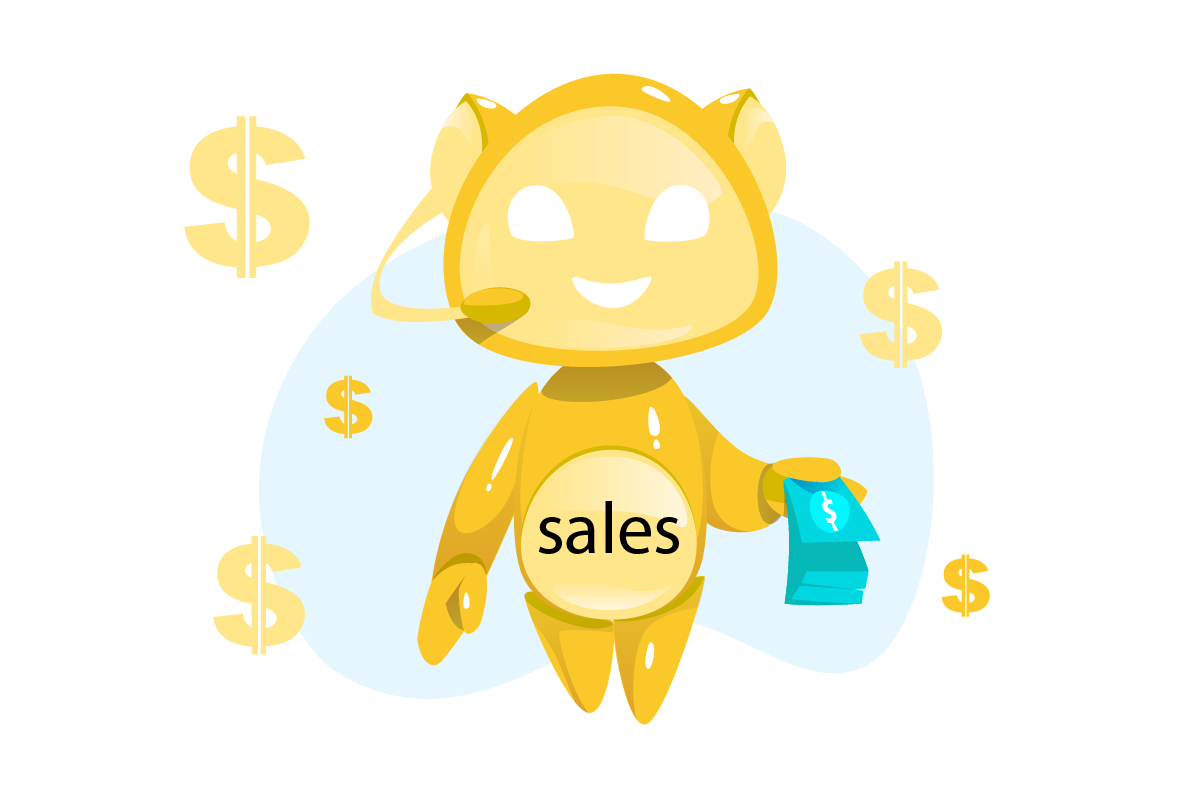
-
Marketing
Marketers can use AI to get more valuable insights about their target audiences, attract relevant leads, and skyrocket conversion rates. Over 60% of customers are willing to use AI for better interaction with brands, so it’s high time marketers implemented this technology.
Take a look at the most significant examples of artificial intelligence in marketing:
- Effective audience analysis. Analyzing your customers’ preferences, pain points, feedback, and credit scores, you can always target them with gripping ads, build a solid emotional connection, and engage them to recommend your brand to others. Your marketing strategies will become more accurate and efficient.
- Personalized website experience. Using AI, you can investigate your users’ locations, devices, buying history, and interactions with your website to detect patterns and provide them with the most relevant products, notifications, and content.
- Increased campaign ROI. Marketers can gain the most meaningful results from data and benefit from them in real-time. AI is a fantastic tool for detecting the most relevant ad placements, finding marketing channels where users are active, and obtaining detailed reports to enhance future campaigns.
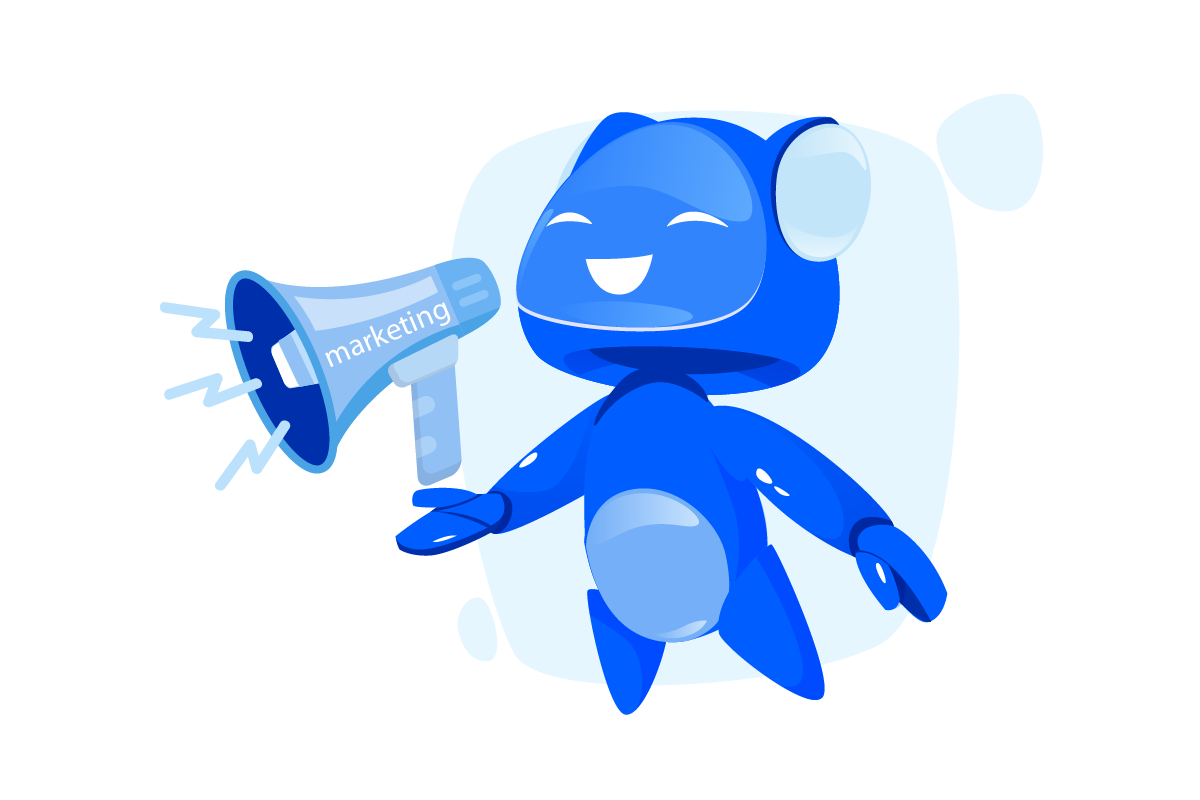
-
Accounting and Finance
Almost 80% of business owners claim that AI-based accounting software is one of the critical factors in enhancing their organization’s productivity. Artificial intelligence helps accountants reveal hidden patterns and automate repetitive tasks like categorizing transactions by transforming the financial landscape.
That’s how accountants can benefit from implementing AI:
- Eliminate time-consuming tasks. Experts can stop spending their resources evaluating expense reports, analyzing documents, and reconciling accounts. Thus, accountants can focus on more strategic activities like competitive position monitoring and customer profitability analysis.
- Predictive analytics. It will help specialists anticipate possible outcomes, make accurate predictions, and develop precise demand planning. Predictive analytics is also an excellent tool for providing clients with solid financial advice and setting up accurately estimated budgets.
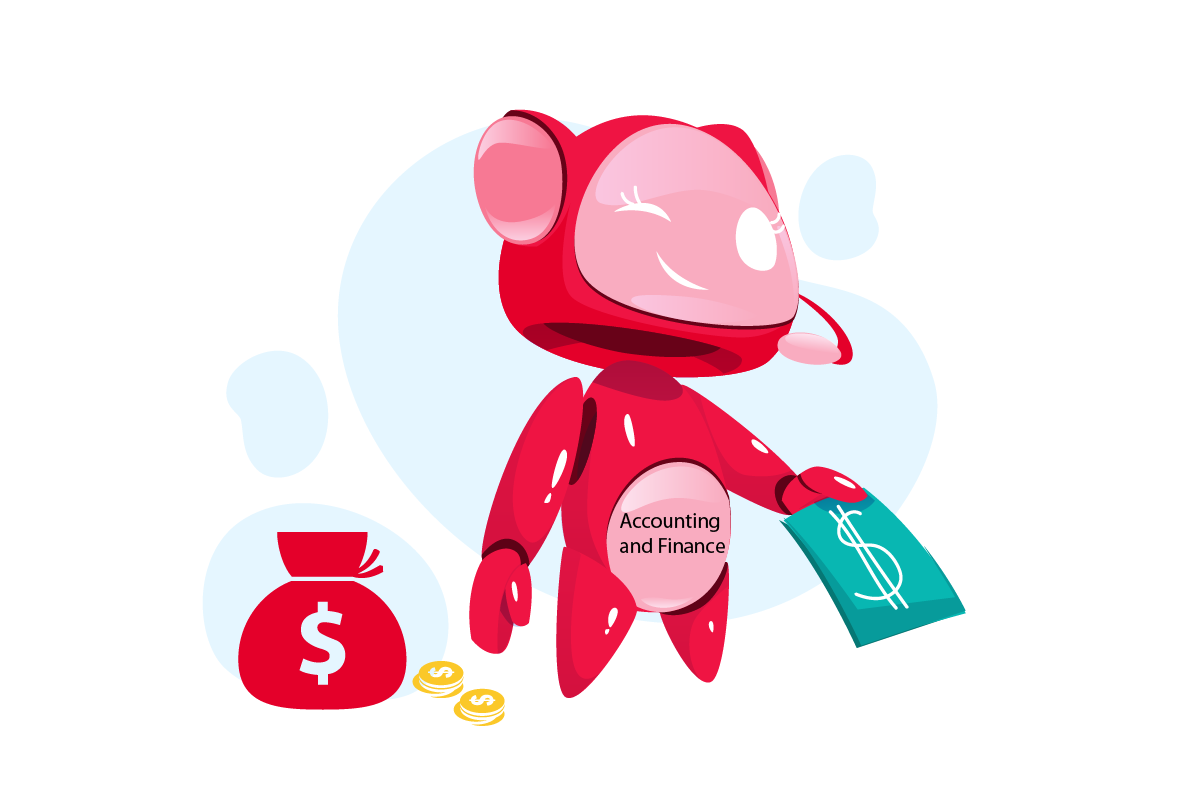
-
Human Resources
With countless resumes and data to analyze, HR managers can use AI in business to spot the perfect applicants much faster. Here are some examples of what HR specialists can achieve using AI:
- Choose better candidates. AI-powered algorithms will analyze applicants’ job experience, soft and hard skills, interests, and career goals to identify a pool of ideal candidates.
- Eliminate hiring discrimination. Computers and algorithms are impartial, making them a perfect match for unbiased recruitment. With such unprejudiced shortlists of applicants, HR managers will drive diversity and inclusion, make more fair decisions, and find experts with the right competencies faster.
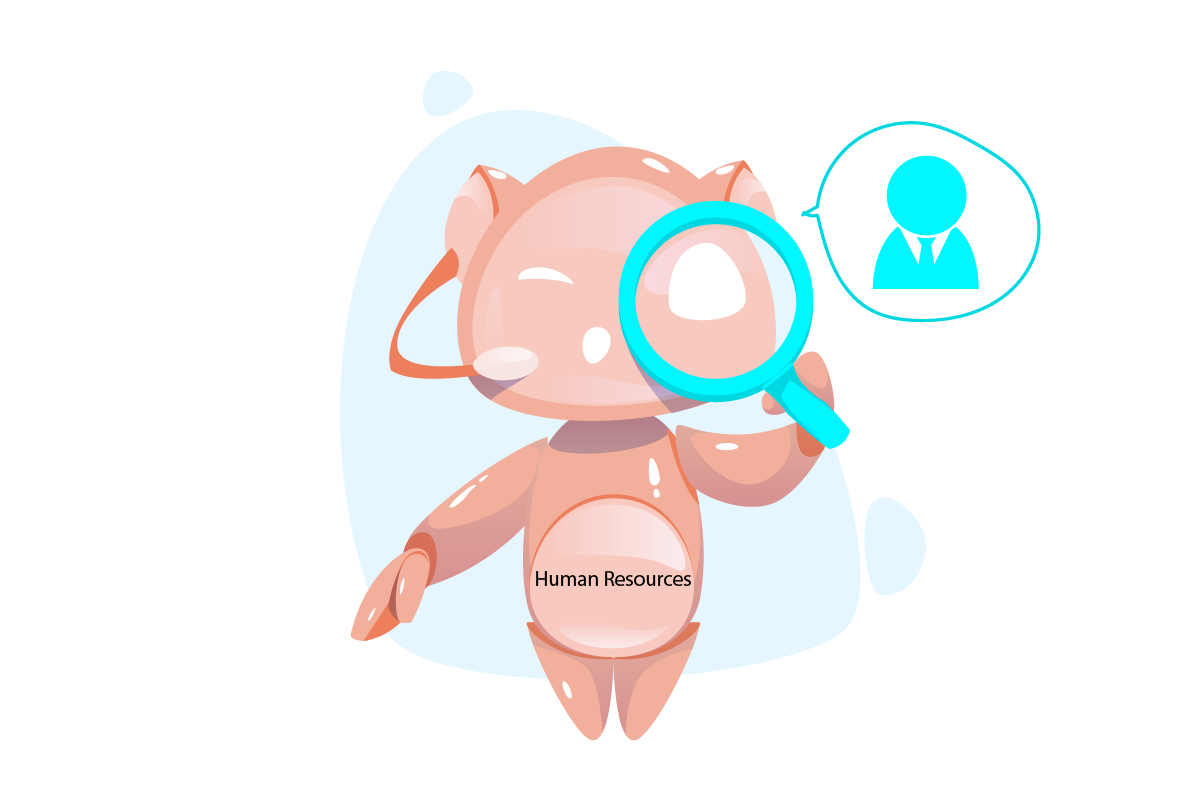
-
IT Operations
Applying AI to IT operations and tasks can help teams work more efficiently and detect issues before they affect users. That’s how IT businesses can benefit from using AI:
- Reduced operating costs. AI-powered software maintenance tools can help specialists spot and eliminate any threats before they do real damage. Without slow and time-consuming manual management, it’s easier to fix bugs in the initial stages and reduce operating costs.
- Faster digital transformation. Whether you want to move from on-premise to cloud computing or need to migrate from a monolith architecture to microservices, AI will help you manage your data and reduce operational friction.
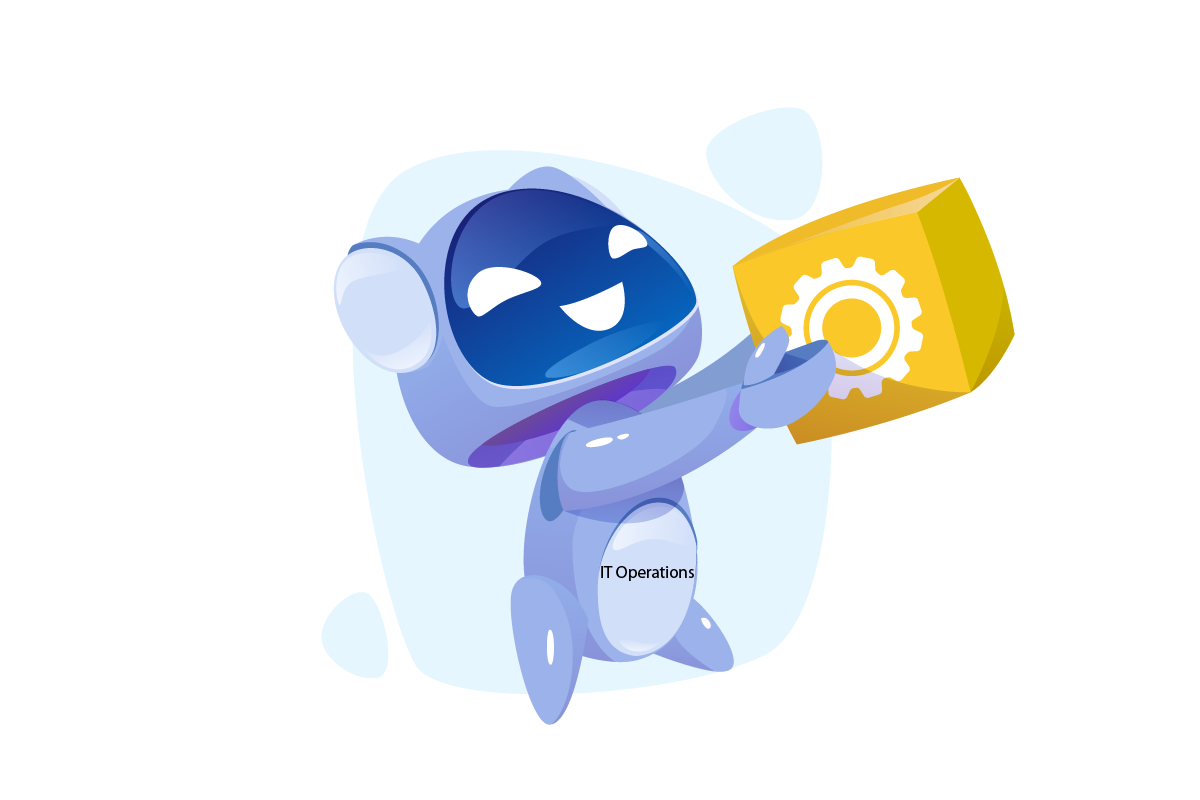
-
Contact Centers
Contact centers need reliable AI solutions for business to understand their leads and clients, resolve urgent queries, and boost loyalty when dealing with a vast amount of data. Here are some ways to benefit from adopting AI:
- Prioritize queries. With tons of requests, it can be challenging for support reps to detect the most urgent ones and assist customers quickly. AI algorithms can recognize sentences with a top-priority indicator that requires an immediate response. It can be phrases like “I want to stop cooperating with your company because…”, “I need to get this order today”, or “I want to make a complaint”.
- Reach out to relevant leads. Trying to contact people that are not interested in your services can be frustrating. AI models will analyze your target audience and help you find high-quality prospects that are more likely to interact with you. You can also benefit from chatbots to present personalized offers and answer questions.

How AI Helps Businesses Grow
Besides data analytics and accurate forecasting, AI can help companies scale their operations in various ways. Now that you understand how different niches can benefit from AI, let’s find out how you can skyrocket your business with this technology.
-
Strong Competitive Intelligence
Competitive intelligence will help you detect relevant rivals and gather information about their strengths and weaknesses. You can also track their actions like marketing campaigns, significant events, and product launches. It will enable you to find out what your target audience is saying about your competitors, use their flaws to your advantage, and spot new marketing channels.
-
Price Optimization
AI helps businesses define optimal prices to remain competitive and keep customers loyal. Factors like brand awareness, market demand, and seasons affect your price, so it’s crucial to adapt it on the fly according to real-time data.
-
Great In-Store Experience
If you have both online and physical shops, you have a chance to take the regular in-store experience to new heights. AI models can analyze your consumers’ data and let you know about their last visits and favorite products. It will help you provide them with personalized discounts and recommendations, loyalty programs, and digital displays with product information for more thoughtful decisions.
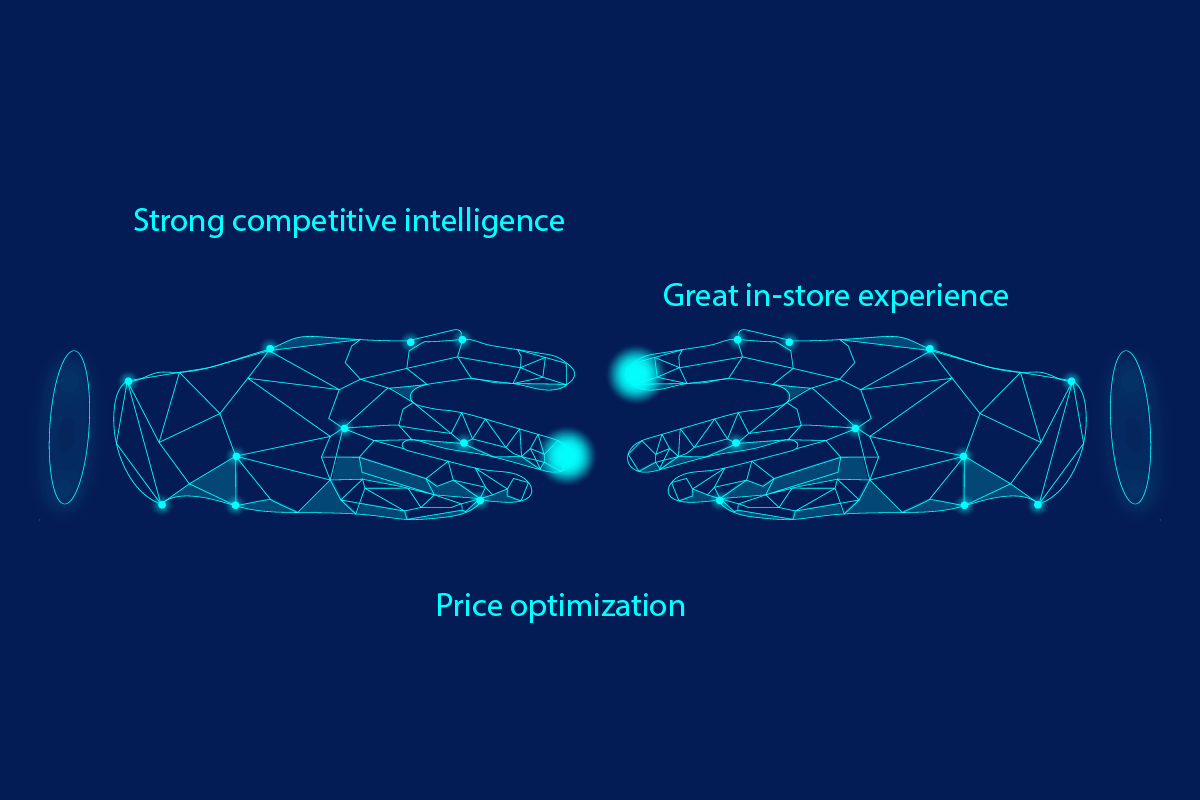
Create Advanced AI Solutions With LITSLINK
Using AI in business, you can scale up your brand and make it more profitable and recognizable. It’s much easier to lead any industry with advanced analytics tools, innovative automation software, and intelligent chatbots.
Whether you require a reliable AI solution to strengthen your HR processes or solid accounting software for better planning, LITSLINK is ready to make your idea happen!
Besides data analytics and accurate forecasting, AI can help companies scale their operations in various ways. Now that you understand how different niches can benefit from AI, let’s find out how you can skyrocket your business with this technology.
Strong Competitive Intelligence
Competitive intelligence will help you detect relevant rivals and gather information about their strengths and weaknesses. You can also track their actions like marketing campaigns, significant events, and product launches. It will enable you to find out what your target audience is saying about your competitors, use their flaws to your advantage, and spot new marketing channels.
Price Optimization
AI helps businesses define optimal prices to remain competitive and keep customers loyal. Factors like brand awareness, market demand, and seasons affect your price, so it’s crucial to adapt it on the fly according to real-time data.
Great In-Store Experience
If you have both online and physical shops, you have a chance to take the regular in-store experience to new heights. AI models can analyze your consumers’ data and let you know about their last visits and favorite products. It will help you provide them with personalized discounts and recommendations, loyalty programs, and digital displays with product information for more thoughtful decisions.


